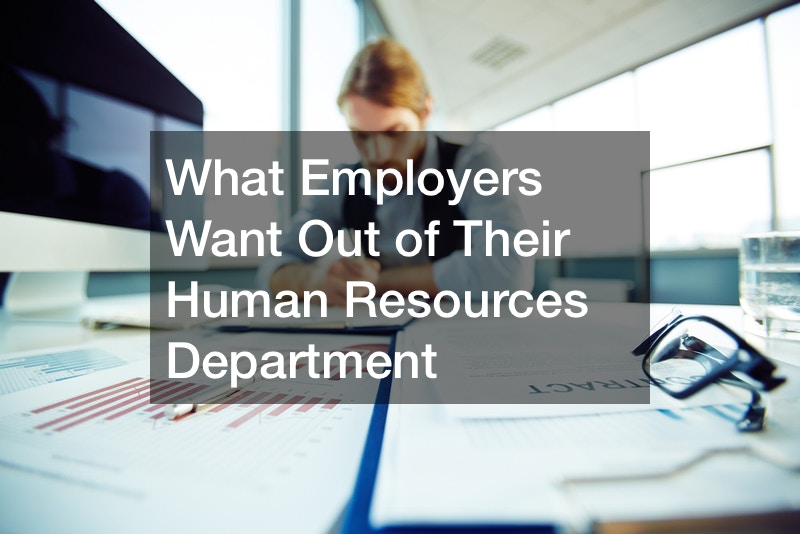What Employers Want Out of Their Human Resources Department

The core responsibilities of human resource management are coming up with workplace policies, hiring process, employee motivation and retention, protection of employees, dealing with the laws affecting employees, and training. The difference between human resource and human resource management is that human resource cares for all employee-related issues such as vetting, promotions, selection, and firing of employees. Human resource management is the approach to effective management of all the people in an organization to help the business gain a competitive advantage. An excellent example of human resource management is the maximization of employee performance.
Human resource compliance is an essential aspect of the organization. Human resource professionals should understand the laws they should comply with and avoid measures that could penalize the organization, such as discrimination in employment and labor relations. Training and education on labor laws and compliance are among the facts about human resource management in organizations that ensure all regulations are followed. Human resources and the management should work together to ensure compliance with the laws.
Providing information and holding employees accountable through education and training is among the best hr compliance practices. It helps employees to understand their roles, responsibilities, and regulations. Regular human resource compliance audits help in planning and illustrate the effectiveness of human resource management.

Talent Acquisition Skills
Applying for a job in human resources can feel a little bit awkward. After all, as you submit your resume and sit in for an interview, you’re trying to convince the person on the other end that that’s what you should be doing.
But there’s more to HR than the ability to conduct (or sit through) an interview. Here are some of the top qualities employers are looking for in their HR candidates:
- HR recruiters in particular need to be very good at not only identifying potential talent, but luring that talent over with firm negotiation tactics and persuasion techniques. HR recruiters need to be sharp and fierce: always on the hunt and reluctant to take “no” for an answer.
- Onboarding Experience
Onboarding is the process whereby new hires adjust to the culture and social expectations of the work environment, which in turn should help them with their job performance and their happiness within the company. In fact, studies show that new hires who go through onboarding are 58% more likely to still be with a company after three years than those who did not. HR consultants who are good at onboarding need to be friendly and informative, almost like a generous host at a dinner party where one guest doesn’t know anyone else. - Interpersonal Relations
Another point part of work in human resources is, of course, the ability to work with and between humans. Dealing with employee conflicts, disputes, or general unhappiness is an essential part of the job. Think about how you could effectively mediate a sticky situation, or about how you might bring more joy to a job. Companies with employee recognition programs, for example, see increases in worker happiness 86% of the time.
Working in HR is much more than just a job. With the right company, it can be a very rewarding way of life. Put your people skills to work effectively by showing how you might shine alongside other HR recruiters or human resources consultants. As everyone employee knows, an excellent workplace culture often follows from excellent HR talent. When HR is happy, so is everyone else.
